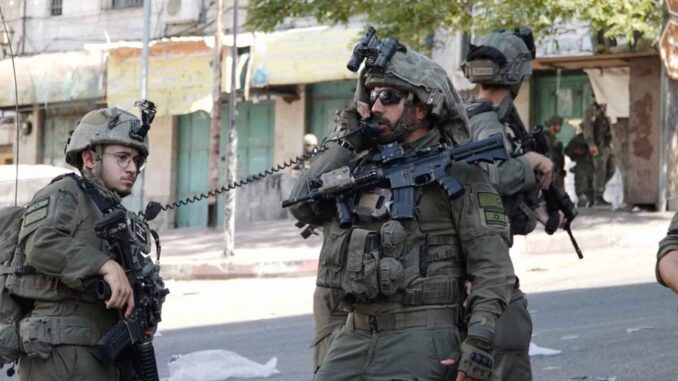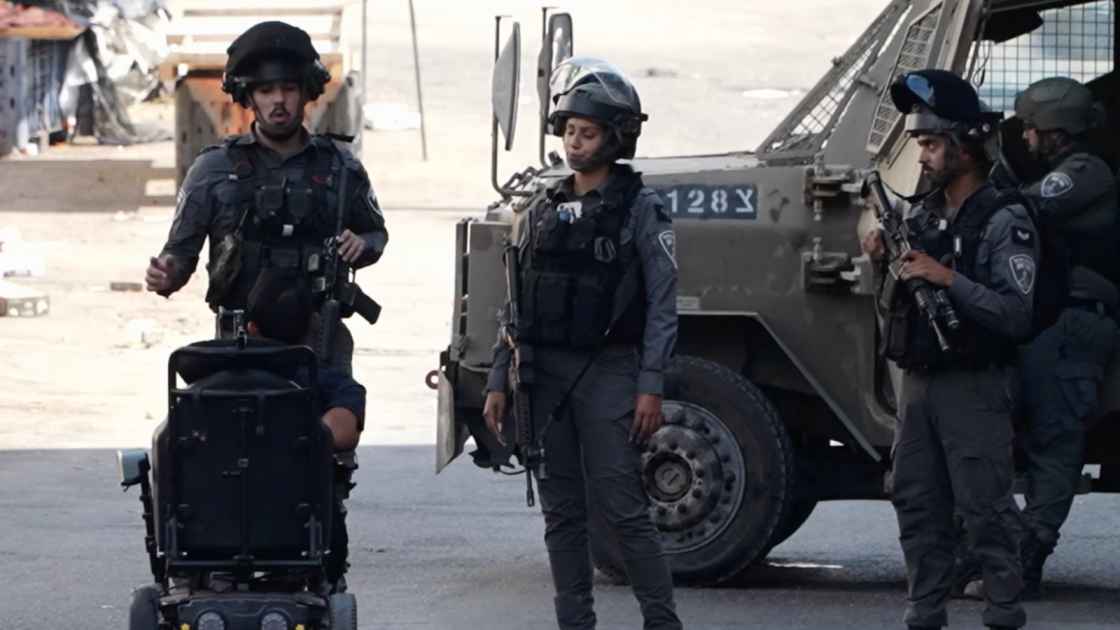
The first Israeli Defence Forces (IDF) soldiers emerge on to the streets of Hebron, through the pedestrian entrance to an Israeli settlement that has taken over a section of the old town.
They are heavily armed and pass me sitting in the doorway of a shop where I had been sheltering from the burning hot West Bank sun.
I murmur a greeting, but they ignore me and head inside, climbing to an upper balcony of the building to oversee the city’s market area.
Within the hour, they’re joined by dozens of military units of the IDF, on foot and in armoured jeeps, fanning out across the busy streets – ordering shops to shut and market traders to wheel away their stalls of fruit and vegetables.
Groups of Palestinian journalists are shouted at and told to move back, and we are as well after I ask to be told in English what they want.
While soldiers continue to close down stalls and shops around us, we are moved three times by them and then finally led away from an area where a green cloth screen is being unfurled by the soldiers.
They’re closing the whole area down, forcing cars to move on, and clearing the streets.
Anyone trying to pass their lines is turned around. A young man in a motorised wheelchair approaches a group of three soldiers – two men and a woman – all heavily armed and imposing.
He, too, is told he cannot pass; he’s told to go back.
An elderly woman attempts to retrieve cardboard boxes and the meagre goods she sells on the roadside, but she is shooed away.
An agitated soldier stamps on the cardboard boxes she was trying to rescue, flattens them, and kicks them against a wall.
It felt to me that everyone looking on, the press and public alike, collectively sighed “really?”
It seemed so pointless to destroy her boxes.
The green cloth screen the soldiers had strung up along a side street billowed in the wind so we could easily see beyond it. The army realised this and manoeuvred vehicles in front of the most exposed areas.
This part of Hebron, a Palestinian city, was locked down.
Some hours later though, groups of Orthodox Jews and Israeli settlers emerged from a settlement and made their way past the screen, staring occasionally into Hebron’s streets, walking towards a tomb about 500 metres away.
The tomb, they say, is a holy site for them, and they wanted to see it.
‘I was born here’
A young Palestinian man who runs his family’s souvenir shop told me that settlers guarded by the military pass by his shop in Hebron weekly.
Waseem Jabari told me he has many Jewish friends, but says when the settlers come, they do it to show the whole city of Hebron belongs to them.
“But for me as a Palestinian who lives in Hebron, and I was born here, I grew up here, I don’t like violence, I don’t like the problem, because it’s not a solution,” he told me.


Leave a Reply